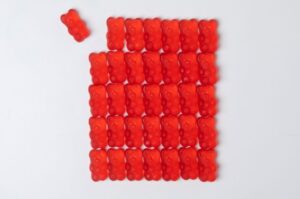
The monsoon season brings relief from the scorching heat, but it also comes with its own set of challenges. One of which is conjunctivitis, known as pink eye.
Conjunctivitis is an eye infection that inflames the thin, see-through layer covering the white part of your eye and the inner eyelids. It spreads especially during rainy seasons with high humidity, as bacteria and viruses thrive in such conditions.
Understanding Conjunctivitis
Causes of Pink Eye
Pink eye caused by viral, bacterial, or allergic reactions. Viral conjunctivitis is the most common type and is often associated with the common cold. Bacterial conjunctivitis caused by bacteria and can spread through direct contact. Allergic conjunctivitis triggered by allergens such as pollen, dust, or pet dander.
Symptoms of Conjunctivitis
Symptoms of Conjunctivitis are redness of the eye, excessive tearing, itchiness, and a gritty sensation. In some cases, patients may experience discharge from the eye, which can be clear or colored. Need to avoid touching the eyes to prevent further spread of the infection.
Types of Conjunctivitis
Conjunctivitis has three types based on the causative agent: viral, bacterial, and allergic. Each type requires different Conjunctivitis treatment approaches for accurate diagnosis.
How to Prevent Conjunctivitis During Monsoon?
1. Maintain Personal Hygiene
Good personal hygiene plays a crucial role in preventing the spread of conjunctivitis. Always wash your hands with soap and water before touching your eyes or handling contact lenses. Avoid touching or rubbing your eyes, as this can introduce harmful pathogens and exacerbate the infection. Carry a pocket-sized hand sanitizer and use it, especially when you are outdoors.
2. Keep Your Surroundings Clean
Clean and disinfect frequently-touched surfaces, such as doorknobs, remote controls, and computer keyboards. Use a disinfectant wipe or a solution of water and bleach to clean surfaces. Keeping your living and working spaces clean can help reduce the risk of contracting conjunctivitis.
3. Avoid Sharing Personal Items
During the monsoon season, it is vital to refrain from sharing personal items, such as towels, handkerchiefs, and eye makeup. Sharing these items can ease the transmission of bacteria or viruses, leading to pink eyes. Encourage your family members and friends to follow the same practice to prevent the spread of the infection.
4. Avoid Crowded Places
Crowded places can be breeding grounds for infectious diseases, including conjunctivitis. Try to limit your exposure to crowded areas, especially during peak monsoon season when the risk of infection is higher. If you have to visit public places, wear protective eyewear or sunglasses to shield your eyes from potential contaminants.
5. Consume a Balanced Diet
A well-balanced diet rich in vitamins and minerals can boost your immune system and help your body fight off infections. Have plenty of fruits and vegetables in your diet like carrots, oranges, and leafy greens. Which are high in vitamin A and antioxidants that promote eye health.
6. Stay Indoors During Heavy Rain
During heavy rainfall, stay at home to avoid exposure to contaminated rainwater and potential eye irritants. If you must go out, carry an umbrella and avoid walking through puddles to reduce the risk of getting infected.
How to Treat Conjunctivitis During Monsoon?
- Avoid Touching or Rubbing Your Eyes
If you suspect you have conjunctivitis, refrain from touching or rubbing your eyes. As this can worsen the condition and spread the infection to the other eye. Wash your hands to reduce the risk of cross-contamination.
- Warm Compresses
Applying warm compresses to your closed eyes. It can provide relief from the discomfort caused by conjunctivitis. Dip a clean cloth in warm water, wring out the excess, and place it over your closed eyes for a few minutes. Repeat this several times a day to reduce conjunctivitis symptoms like itching and swelling.
- Avoid Wearing Contact Lenses
If you wear contact lenses, don’t use them until the infection clears up. Contact lenses can trap bacteria and make the infection worse. Switch to glasses during this time and disinfect your contact lenses before wearing them again.
- Keep the Area Clean
Clean the affected eye area with a mild saline solution or clean water to remove discharge or crust that may have accumulated. Use a clean cotton ball or soft cloth to wipe the eye from the inside corner to the outside. Avoid using the same cotton ball for both eyes to prevent the spreading of infection.
Dealing with Conjunctivitis at Home
Do’s
- Do clean your hands before and after applying any conjunctivitis eye drops or ointments.
- Do use a separate towel for drying your face and eyes to avoid contamination.
Don’ts
- Don’t wear contact lenses until the infection clears up completely.
- Don’t rub your eyes, as it can worsen the condition and spread the infection.
When to Seek Medical Attention
- Severe Symptoms
If the symptoms of conjunctivitis worsen or persist for more than a few days, it is crucial to seek medical attention. Severe redness, pain, blurred vision, or light sensitivity may state a more severe underlying condition.
- Complications
Conjunctivitis is mild but certain complications can arise if left untreated. These include corneal ulcers or secondary infections, which can lead to vision problems.
Coping with Conjunctivitis
- Managing Discomfort
It can be uncomfortable, but with treatments and following the doctor’s advice can help ease discomfort.
- Psychological Impact
Eye conditions like the pink eye can cause distress and embarrassment. Need to remember that conjunctivitis is a common and treatable condition. It seeking medical attention is crucial for a quick recovery.
Conclusion
As the monsoon season brings an increase in conjunctivitis cases, it is crucial to take proactive measures to prevent and treat pink eye. In case of any conjunctivitis symptoms or concerns, do not hesitate to seek medical advice from a qualified healthcare professional. Remember, prevention is always better than cure, so focus on your eye health and enjoy the monsoon season.
Read Next Blog:
What is Crystal Boba and How is it Made?







